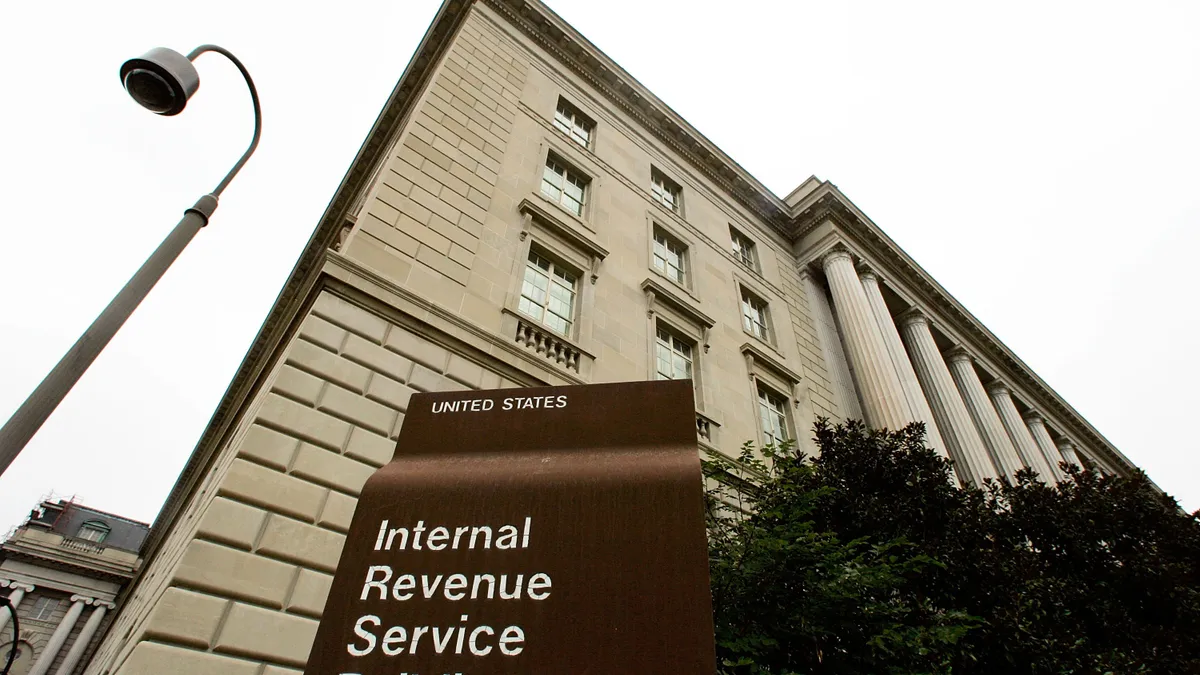Dive Brief:
- Michael Plowgian, a former international tax negotiator in the Biden administration, has rejoined KPMG, where he will serve as principal of Washington National Tax in Washington, D.C. and as the International Tax Policy Lead for the Americas on the firm’s global policy leadership team, according to a company release Tuesday.
- Plowgian left the U.S. Treasury in December after serving as deputy assistant secretary for international tax affairs. He was also a negotiator to the Organization for Economic Cooperation and Development on its two-pillar tax reform plan that includes a 15% global minimum tax that Congress has been deadlocked over even as a growing number of other countries have signed on.
- Plowgian’s move comes as finance leaders at multinational firms are grappling with OECD’s major tax initiative with which they’re expected to comply in countries where the directive has been adopted. “In my new role, I will focus on helping multinational businesses navigate the evolving and increasingly complex international tax landscape,” Plowgian told CFO Dive in an email. “The most immediate priority is helping clients address the complexities that come with the implementation of BEPS 2.0/Pillar Two.”
Dive Insight:
The minimum global tax is at the center of the so-called Pillar 2 piece of the OECD’s base erosion and profit sharing project that is designed to level the playing field by fighting tax avoidance and shutting down tax havens. This year large U.S. companies that previously benefited from single-digit tax rates in some jurisdictions outside the U.S. must now pay at least 15% in countries that have implemented the accord, The Wall Street Journal reported.

In an emailed response to a CFO Dive question about tax risks facing business clients that “keep him up at night,” Plowgian cited the wide-ranging impact that Pillar 2 rules will have on companies and the importance of businesses taking action now.
“Although the U.S. has not yet signed onto the deal, many U.S. multinationals will be impacted due to their international operations. And this impact should not be understated,” he said. “Pillar Two rules already apply in over 30 countries around the world — throughout Europe, in Japan and South Korea, and coming soon to Australia and Canada.”
Plowgian also asserted that the global minimum tax and two-pillar rules have broad company-wide implications, noting that they impact departments ranging from finance and controllership functions to IT, HR, internal audit and legal. “Complying with this new regime, cannot be a siloed effort within the tax department. We’re confident that the companies that are best prepared will be those that tackle this with a team from across the business,” he said.
The debate in the U.S. over how Pillar 2 will impact companies has been raging for some time and stymied its adoption. While Treasury Secretary Janet Yellen has long pushed for the global minimum corporate tax rate, the initiative has drawn strong pushback from many Republicans and other critics, some of whom argue it will lead to lost tax revenue and limit Congress’s ability to set its own tax policy, CFO Dive previously reported.
Looking ahead, Plowgian says it’s unlikely the path forward for the global minimum tax initiative in the U.S. will open in 2024, given that it’s an election year.
“As with any election year, it is hard to predict, but the odds of enactment before the election are very low. After the election, of course, it will be up to the new Congress,” he said in an email. Depending on the election’s outcome, Pillar 2’s prospects could brighten next year or in 2026 when he sees a “good chance” that Congress will take up a major tax bill since there are a lot of important provisions that will expire at the end of 2025. “In that case, adoption of Pillar 2 could be a way to pay for some other priorities Congress may have,” he said.














